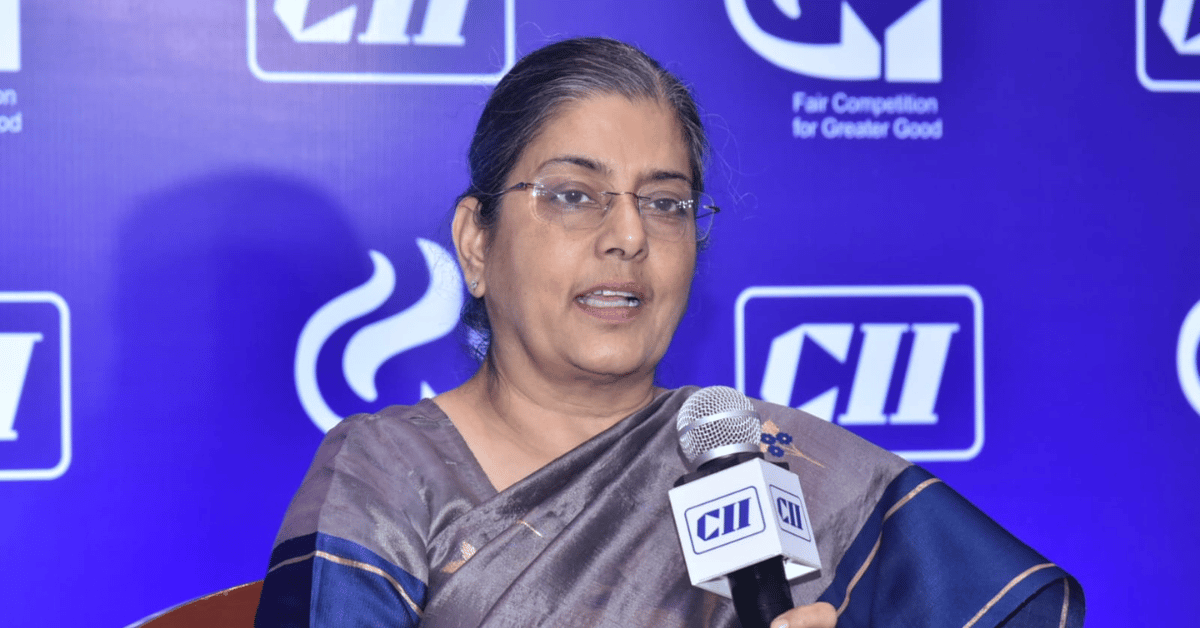The CCI chairperson flagged the competitive advantages gained by tech majors by collecting, analysing and leveraging vast amounts of data from their customers
Kaur said that control over large datasets could create insurmountable barriers to entry for new players and may lead to a winner-takes-all scenario
This comes days after the Centre sought comments from the general public on the draft digital competition bill to address the evolving needs of the homegrown digital economy
Competition Commission of India (CCI) chairman Ravneet Kaur on Monday (May 20) reportedly said that the competition watchdog was focussed on emerging areas of the digital economy to safeguard consumer interest.
Addressing the 15th Annual Day of the CCI, Kaur said that the draft competition bill is part of its strategy to ensure that the enforcement of competition law evolves in tandem with innovations in the digital space.
“Looking ahead, the commission is committed to being at the forefront of nurturing a competitive culture across all sectors. We are focusing on emerging areas in (the) digital economy, which are redefining the marketplace dynamics. Our goal is to ensure that competition law enforcement evolves in tandem with these innovations, safeguarding the interests of consumers and ensuring fair play,” the CCI chairperson said, as per a Business Today report.
She also flagged concerns over the “opacity of algorithms” and “data dominance” of digital firms that could potentially pose a challenge to regulators globally.
Elaborating on this, the CCI chairperson said that while algorithms play an important role in shaping user experiences as well as making pricing and product placement decisions, the opacity of such algorithms could make it challenging for regulators to assess the impact on competition.
“Issues like algorithmic collusion, where algorithms might implicitly coordinate prices or market strategies without explicit human direction was a novel challenge for us,” Kaur reportedly said. She underlined the need for “regulatory agility, the development of new analytical tools and novel regulatory frameworks” to address such issues.
Training guns at big tech giants, Kaur said that certain digital platforms gained competitive advantages by collecting, analysing and leveraging vast amounts of data online from their customers.
“Control over large data sets can create insurmountable barriers to entry” for new players, said Kaur, adding that these could quickly lead to a winner-takes-all scenario where one or few companies may potentially dominate the market.
“One of the most important features of digital markets is the tendency towards market concentration. And many digital platforms benefit from network effects where the value of the service increases as more users join,” she added.
Among other things, the CCI chairperson also raised concerns over business models prevalent in digital markets whereby a single entity controls access to a wide range of services. As per Kaur, such a model raised issues of platform neutrality, especially when such digital platforms also compete with businesses that rely on their infrastructure.
She added that there were growing concerns that digital platforms potentially favour their services or products as against their competitors.
Meanwhile, the watchdog is also in the process of launching a market study on artificial intelligence (AI) to develop an in-depth understanding of the emerging technology on the digital landscape.
This comes as the Centre has been looking to formulate a new digital competition bill to address the evolving needs of the homegrown digital market. Authorities recently sought comments from the general public on the draft bill, the deadline for which ended on May 15.
Going forward, the Ministry of Corporate Affairs will take a call on the matter and build the proposed regulatory framework.
Disclaimer
We strive to uphold the highest ethical standards in all of our reporting and coverage. We StartupNews.fyi want to be transparent with our readers about any potential conflicts of interest that may arise in our work. It’s possible that some of the investors we feature may have connections to other businesses, including competitors or companies we write about. However, we want to assure our readers that this will not have any impact on the integrity or impartiality of our reporting. We are committed to delivering accurate, unbiased news and information to our audience, and we will continue to uphold our ethics and principles in all of our work. Thank you for your trust and support.



![[CITYPNG.COM]White Google Play PlayStore Logo – 1500×1500](https://startupnews.fyi/wp-content/uploads/2025/08/CITYPNG.COMWhite-Google-Play-PlayStore-Logo-1500x1500-1-630x630.png)